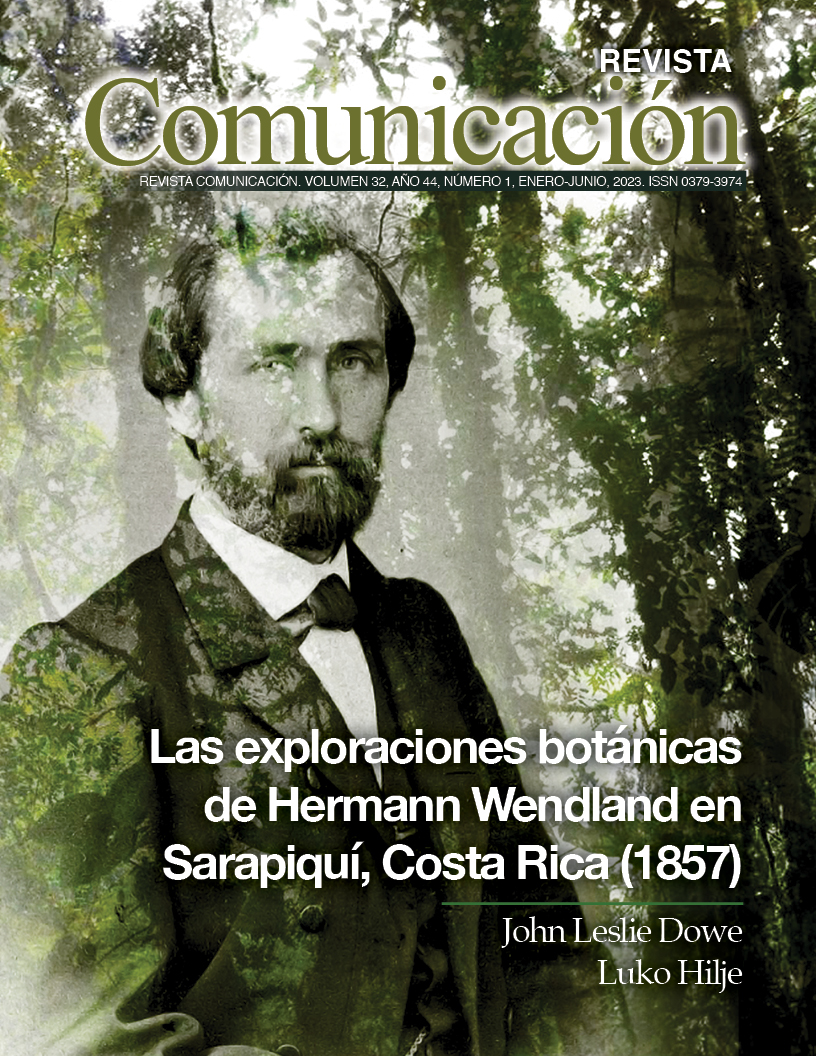Reasons to Trust Wikipedia as a Source of Knowledge
Main Article Content
Abstract
This paper analyzes, under the framework of applied social epistemology (that is, from an analytical and normative perspective),
the debate around the reliability of Wikipedia as a source of knowledge by proposing that Wikipedia is reliable and
therefore should be trusted as a source for acquiring real arguments.
Article Details
This work is licensed under a Deed - Atribución/Reconocimiento-NoComercial-SinDerivados 4.0 Internacional - Creative Commons.
Política de acceso abierto
Esta revista provee acceso libre inmediato a su contenido bajo el principio de que hacer disponible gratuitamente investigación al público apoya a un mayor intercambio de conocimiento global.
Ser una revista de acceso abierto, implica que todo el contenido es de libre acceso y sin costo alguno para el usuario o usuaria, o institución. Las personas usuarias pueden leer, descargar, copiar, distribuir, imprimir y buscar los artículos en esta revista sin pedir permiso previo del editor o el autor con fines educativos y no de lucro.
La única limitación de la reproducción y la distribución, y el único papel de los derechos de autor en este ámbito, debe ser dar a los autores el control sobre la integridad de su trabajo y el derecho a ser debidamente reconocidos y citados. (Budapest Open Access Iniciative)
LICENCIAMIENTO Y PROTECCIÓN INTELECTUAL
Todos los artículos publicados, están protegidos con una licencia Creative Commons 4.0 (Deed - Atribución/Reconocimiento-NoComercial-SinDerivados 4.0 Internacional - Creative Commons) de Costa Rica. Consulte esta licencia en: https://creativecommons.org/licenses/by-nc-nd/4.0/deed.es
Las licencias constituyen un complemento al derecho de autor tradicional, en los siguientes términos:
- Se impide la obra derivada (es decir, no se puede alterar, transformar ni ampliar el documento).
b. Siempre debe reconocerse la autoría del documento referido.
c. Ningún documento publicado en la Revista Comunicación, puede tener fines comerciales de ninguna naturaleza.
Mediante estas licencias, la revista garantiza al autor que su obra está protegida legalmente, tanto bajo la legislación nacional como internacional. Por tal motivo, cuando sea demostrada la alteración, la modificación o el plagio parcial o total de una de las publicaciones de esta revista, la infracción será sometida a arbitraje internacional en tanto que se están violentando las normas de publicación de quienes participan en la Revista y la Revista misma. La institución afiliada a Creative Commons para la verificación en caso de daños y para la protección de dichos productos es el Instituto Tecnológico de Costa Rica, mediante la Editorial Tecnológica y la Vicerrectoría de Investigación.
References
Chase, J. y Coady, D.. (2019). The Routledge Handbook of Applied Epistemology. NY: Routledge
Claes, F. y Tramullas, J. (2021). Estudios sobre la credibilidad de Wikipedia: una revisión. Área Abierta, 21(2), 187-204
Coady, D. (2012). What to Believe Now: Applying Epistemology to Contemporary Issues. Wiley-Blackwell: Singapore
de Laat, P. B. (2010). “How Can Contributors to Open- Source Communities Be Trusted?” Ethics and Information Technology 12(4): 327–41
Elmimouni, H. Forte, A y Morgan, J. (7-9 de septiembre de 2022). Why People Trust Wikipedia Articles: Credibility Assessment Strategies Used by Readers. The 18th International Symposium on Open Collaboration. Madrid, Spain
Espinosa, J. (29 de noviembre de 2021). Patricia Díaz, directora de Wikimedia Chile: “Wikipedia no es citable, lo ideal es ir a la fuente”. ADN. Recuperado de https://www.adnradio.cl/tecnologia-y-videojuegos/ 2021/09/29/wikipedia-por-accion-de-provosteno-somos-fuente citable.html
Fallis, D. (2012). Wikipistemology. En Goldman, A. y Whitcomb, D. (Eds.), Social Epistemology: Essential Readings (pp. 297- 313). Oxford: OUP
Faulkner, P. (2011). Knowledge on Trust. Oxford: OUP
Frost-Arnold, K. (2019). Wikipedia. En Chase, J y Coady, D. (Eds.), The Routledge Handbook of Applied Epistemology (pp. 28-40). NY: Routledge
———————(2021). The Epistemics Danger of Context Collapse Online. En J. Lackey (Ed.), Applied Epistemology (pp. 437-456). Oxford: OUP
Giles, J. (2005). Internet encyclopaedias go head to head. Nature 438, 900-901
Goldman, A. (2012a). Why Social Epistemology is Real Epistemology. En A. Goldman (Ed.), Reliabilism and Contemporary Epistemology (pp. 248-279). Oxford: OUP
—————. (2012b). A Guide to Social Epistemology. En A. Goldman (Ed.), Reliabilism and Contemporary Epistemology (pp. 221-247). Oxford: OUP
Gunn, H. y Lynch, Michael. (2021). The Internet and Epistemic Agency. En J. Lackey (Ed.), Applied Epistemology (pp. 389-409). Oxford: OUP
Hardwig, J. (1985). Epistemic Dependence. The Journal of Philosophy 82(7), 335-349
Hwang, T.J. Bourgeois, F. Pahrm, S. (2014). Drug Safety in the Digital Age. New England Journal of Medicine 370 (26), 2460-2462
Magnus, P. D. (2009). On Trusting Wikipedia. Episteme 6, 74-90
Moran, R. (2006). Getting Told and Being Believed. En Lackey, J. y Sosa, E. (Eds.), The Epistemology of Testimony (pp. 272-306). Oxford: OUP
Nature. (2006). “Nature’s Response to Encyclopaedia Britannica”. Recuperado el 28 de mayo de 2023. https://www.nature.com/nature/britannica/eb_advert_response_final.pdf
Read, B. (2006). “Can Wikipedia ever make the grade?” Chronicle of Higher Education, 53(10): A31.
Rosenzweig, R. (2006). Can History be Open Source? Wikipedia and the Future of the Past. The Journal of American History Volume 93(1), 117-146
Searle, J. (2010). Making the Social World. Oxford: OUP
Sierra, A y González, N. (2021). “Percepción de los estudiantes sobre la fiabilidad de la wikipedia”. Bordón: Revista de pedagogía, 73(1), 111
Soler-Adillon, J. Pavlovic, D. y Freixa, P. (2018). Wikipedia en la Universidad: cambios en la percepción de valor con la creación de contenidos”. Comunicar, 26(54): 39-48
Thi Nguyen, C. (2021). How Twitter Gamifies Communication. En J. Lackey (Ed.), Applied Epistemology (pp. 410-436).Oxford: OUP

